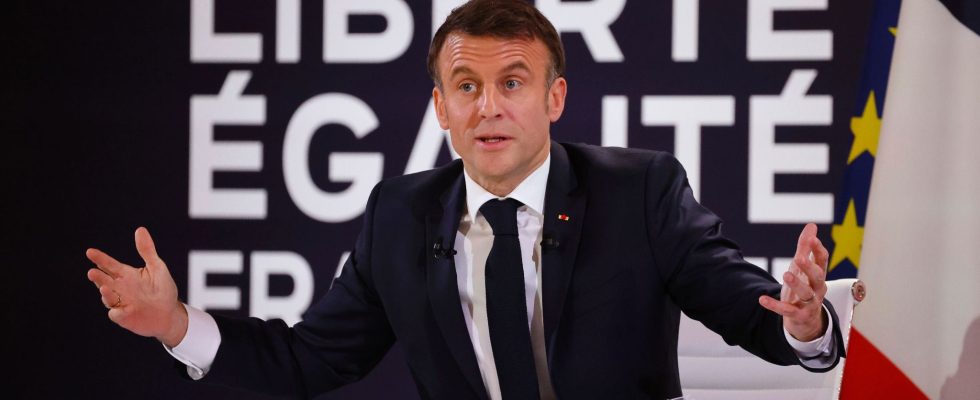Emmanuel Macron’s communication strategy often gives the feeling that it is erratic. Without talking about the substance of the messages that are delivered, the very frequency of his speeches is disconcerting. Remaining silent for long periods, giving the impression that he wants to embody the presidential function through silence, he suddenly becomes talkative and appears on television for sometimes very long periods of time as was the case on Tuesday January 16 when he monopolized TF1, France 2… eight channels in total, for more than two hours.
However, he announced his philosophy during his first election in 2017: his words would be rare. This statement did not hold up long in the face of facts. Those who later analyze the speeches of the President of the Republic will be dealing with sweeping speeches. One of his memorable speeches was made during the great national debate, on January 15, 2019, in front of 600 mayors for almost seven hours! The performance is physically remarkable but, in the long run, is it convincing? Emmanuel Macron is undoubtedly, contrary to his initial intentions, the most talkative president of the Fifth Republic.
But the question therefore arises: is it useful to speak a lot and often to be heard? Firstly, we find arguments to answer yes to this question. Indeed, science has extensively studied the effects of a repeated message on minds and has discovered a process called the “mere exposure effect”. It was a famous social psychologist at the University of Michigan, Robert Zajonc, who was the first to show that familiarity with information tends to make us interpret it in a positive way. Repeating the same message can therefore pay off. This effect has been reproduced dozens of times experimentally. It has been shown that even false information, when repeated over time, ends up being believed more easily. There’s more: when individuals know this false information, its repetition makes them perceive it as more probable than initially. This message, because of the impression of familiarity it inspires, therefore partly alters our perception of plausibility. The thing is well known in the advertising field but it has also been tested in the field of political assertions, obtaining the same effects.
Militarization of language
However, everyone knows that when the message becomes a refrain, it ends up tiring. Not only are we less attentive to it, but the reactions it provokes end up blunting. Again, this is exactly what the science shows. The reaction to a repeated stimulus causes a response that is increasingly weak. This is what we could call a saturation effect. Emmanuel Macron, through his erratic and incessant communication, gives the impression that his speech is today confronted with this saturation effect. Thus, despite the considerable resources that were used, the share of French attention devoted to the latest presidential speech intended to relaunch the five-year term only reached 8.7 million of our fellow citizens. It’s not nothing, but it’s less than the 10.2 million he gathered for his wishes and the 15 million who listened to him about pension reform in less favorable media conditions.
We need look no further than the clear, worried awareness of this blunting effect, the very inflation of political language in general. We remember, for example, that François Hollande had worn down to the core the already emphatic notion of “pact”: pact of responsibility, solidarity, growth… Not strong enough? No matter, Macronie has adopted the notion of “shock”, already a little more warlike: “shock of knowledge”, “shock of taxation”. When the word tires, it swells like an ox. But now the time has come for rearmament: “civic rearmament”, “demographic rearmament”… This militarization of language seems to me less to indicate, as some fear, a growing authoritarianism, than the clear awareness of a certain powerlessness.
Gérald Bronner is a sociologist and professor at La Sorbonne University.
.
